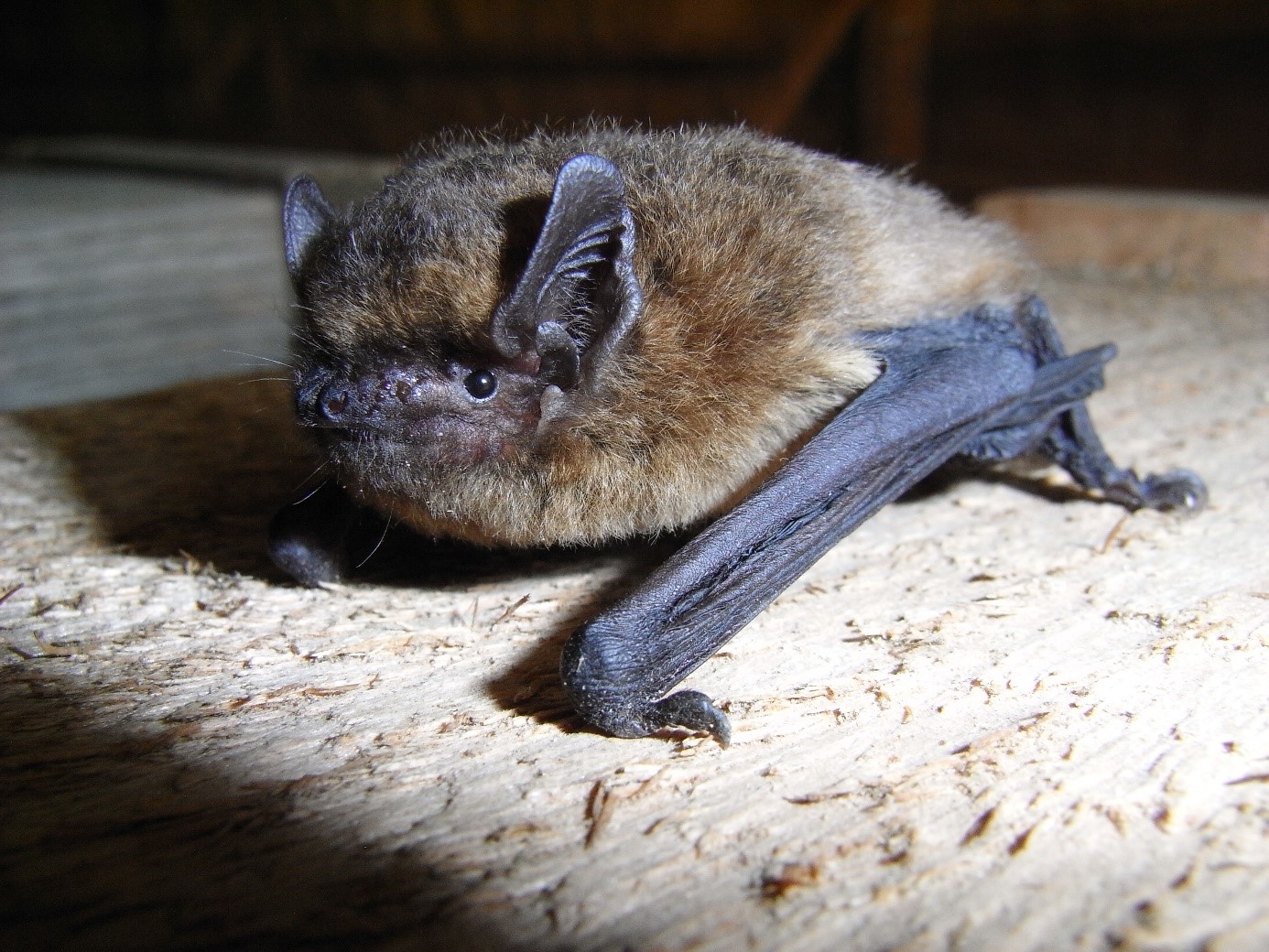Piles of wood are particularly popular with Nathusius' bats
Especially now that people are heating with wood again, the piles of logs on the house and garage walls are increasing.
These deposits are often used as winter quarters by the small pipistrelle bats (Pipistrellus nathusii), which weigh 7-9 g. Like all native bats, they need a quiet, undisturbed winter quarters in order to be able to survive the insect-free period. Wood piles are a good alternative to natural tree cavities for them.
Nathusius bats are special because they make record-breaking migrations. Like migratory birds and other European bats, they migrate between their summer and winter habitats. Scientists found this out by recovering bats. The bats were marked with small numbered metal clips. The Federal Agency for Nature Conservation and the Zoological Research Museum Alexander König in Bonn evaluated the data and determined the world's longest flight distance for a Nathusius' bat. The bat was tagged in Latvia and recovered 1.905 km south in Croatia.
With us, the hibernating bats are usually found when shifting and clearing stacks of wood. In this case, the animal should be handled carefully, only with gloves, to let it crawl to another part of the woodpile that will not be cleared in the coming weeks. Or it is laid cat-safe, deep between the logs, whereby it is essential to ensure that there is a free exit.
The bat should never be taken into the warm room. She would then wake up, using up valuable stores of winter fat that she would need for the remainder of her hibernation through April. You don't have to be afraid that the bats will freeze to death. If the ambient temperature falls below freezing, it wakes up automatically and looks for a warmer place to sleep.
Bats can be found, preferably with a photo, at the Lower Nature Conservation Authority at the Altötting District Office with Dr. Dorothea Friemel (phone: 08671 502-763, e-mail: Dorothea.Dr.Friemel@lra-aoe.de) should be reported.
The picture shows a pipistrelle bat (Pipistrellus nathusii) weighing about 7 g, which overwinters in wood piles.
(Photo: Dr Andreas Zahn)





